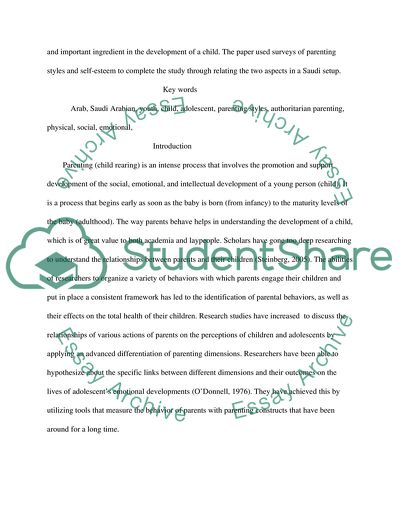Cite this document
(“Authoritarian Parenting Style and Its Negative Impact Research Paper”, n.d.)
Retrieved from https://studentshare.org/psychology/1644861-does-authoritarian-parenting-style-negatively-impact-adolescents-self-esteem-in-saudi-arabia
Retrieved from https://studentshare.org/psychology/1644861-does-authoritarian-parenting-style-negatively-impact-adolescents-self-esteem-in-saudi-arabia
(Authoritarian Parenting Style and Its Negative Impact Research Paper)
https://studentshare.org/psychology/1644861-does-authoritarian-parenting-style-negatively-impact-adolescents-self-esteem-in-saudi-arabia.
https://studentshare.org/psychology/1644861-does-authoritarian-parenting-style-negatively-impact-adolescents-self-esteem-in-saudi-arabia.
“Authoritarian Parenting Style and Its Negative Impact Research Paper”, n.d. https://studentshare.org/psychology/1644861-does-authoritarian-parenting-style-negatively-impact-adolescents-self-esteem-in-saudi-arabia.


